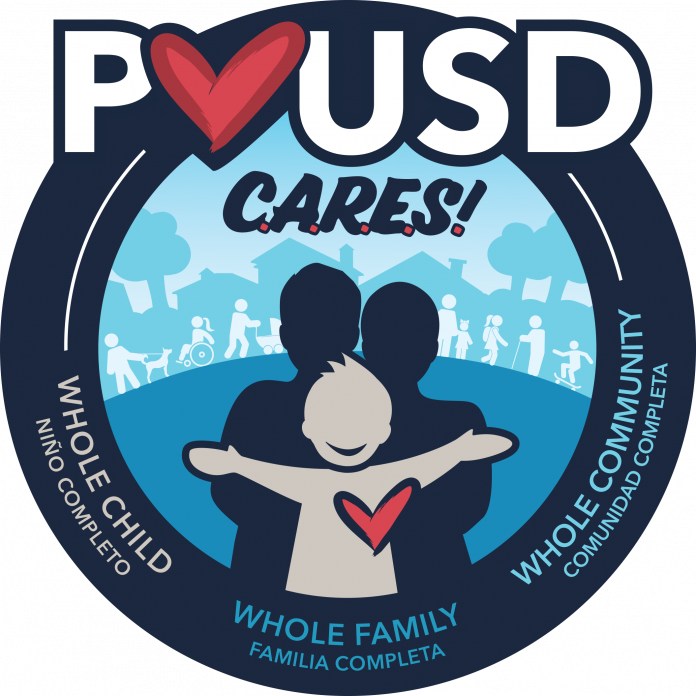A question we often hear from constituents is, “I don’t have kids at PVUSD. Why should I invest my time, energy, and tax dollars in schools?” However, a study in The Journal of Urban Affairs noted a strong correlation between community satisfaction and school quality. Furthermore, this association continued even for households without children. Consider it like investing in roads. We may not see the direct benefit of a road repair in the next neighborhood over, but reducing traffic past our own homes makes a difference in our daily lives.
We take pride in PVUSD’s community partnerships and strive to ensure that the benefits flow both ways. For example, our Family Engagement and Wellness Center opens at E.A. Hall Middle School later this month. This is the first of several planned sites managed in collaboration with Pajaro Valley Prevention and Student Assistance, Community Action Board, Second Harvest Food Bank and Salud Para La Gente. These centers will benefit the whole community by connecting our families with more easily accessible resources. Easier access means earlier interventions, better outcomes and reduced impact on clinics and institutions outside PVUSD.
There are many more examples. Last June, the board voted to support a joint-use agreement with the city of Watsonville for access to our sites for Parks and Recreation activities. The collaboration allows community organizations to use our fields, which encourages healthy physical activity. The Henry J. Mello Center—built to replace Watsonville High School’s auditorium following the Loma Prieta earthquake—provides a prime venue for performing arts in the Pajaro Valley. Our Emeril Lagasse Culinary Garden and Teaching Kitchen will provide food for families as well as staples for organizations like Loaves and Fishes. Community groups, such as the Teen Kitchen Project, can benefit by utilizing the space to create meals for those in need.
Our community has created and fostered these partnerships in the face of chronic underfunding of the public school system. A 2020 report from The Century Foundation estimated that, nationally, schools were underfunded by almost $150 billion annually. PVUSD was estimated to be among districts with the largest gap between funding and need.
We have a temporary windfall from the state and are effectively using one-time funding by investing in our community and partner ecosystem. However, ongoing costs present ongoing challenges. Part of the problem is the practice of funding schools based on average daily attendance (ADA). This is calculated by the total days of student attendance divided by the total days of instruction.
What ADA-based funding means in practice is that schools lose funding for every day that a student is absent. And, like 95% of districts in our state, we have overall declining enrollment. But teachers, custodians and other school personnel still need to be present. The equipment and programs that students use still need to be available. Furthermore, we are still in a global pandemic. Therefore, students must stay home if they are symptomatic. Schools should not have their already scarce resources penalized for acting in the best interest of public health.
For a state with an economy ranked above most nations, it is unconscionable that we fall among those states with the lowest per-pupil funding in the country. We need to reevaluate how we allocate resources. While California is 10th in the United States for per capita income, we spend less on education than comparable states. The situation is further complicated because expenses, like those for health care, have increased faster than revenue, widening the gap between resources and need.
Solving the dilemmas faced by school boards across our state is a significant undertaking, but not an impossible one. We cannot emphasize enough the importance of grassroots organizing. Talk with your family, friends, and neighbors about these issues. Reach out to your elected officials. Certainly, talk to those of us on the PVUSD board about how we allocate the funds we have, but it must go beyond that. It is like our district is given a pie—the board has the responsibility to determine how it is sliced. But if we want more to work with overall, that must come from the state and federal government.
We are fortunate to have state legislators in our area who have been very supportive of public schools. We often contact elected officials when we have a concern, but reaching out with support is also very important. For example, Assemblymember Robert Rivas authored legislation to establish the “Golden State Teacher Grant Program,” which gives $20,000 in scholarships to students who commit to teaching for four years in a shortage area. This program was allotted an additional $200 million for expansion in the last state budget, which could encourage college students to pursue a career path in our district. A high volume of communication in favor of such measures provides personal encouragement and leverage for conversations with colleagues about further community support.
For schools to serve public interests, the public must be interested. Democracy can be messy, chaotic, and often frustrating. But there is a remarkable opportunity to create robust structures that strengthen us all in that maelstrom of voices and viewpoints. Supporting thriving public schools is one way that our community can build a strong foundation. And the work our district does with a coordinated system of partnerships leverages our funding and staffing in service of all those living within our area. That is the beauty of a unified district.
A humbling aspect of becoming a school board trustee is realizing how many different considerations go into every decision. This column is PVUSD’s community outreach to clarify how the board arrives at its decisions. Jennifer Holm is President of the PVUSD Board of Trustees and Jennifer Schacher is the Vice-President. Their views are her own and not necessarily those of the Pajaronian. Contact Holm at je***********@***sd.net and Schacher at je***************@***sd.net.








